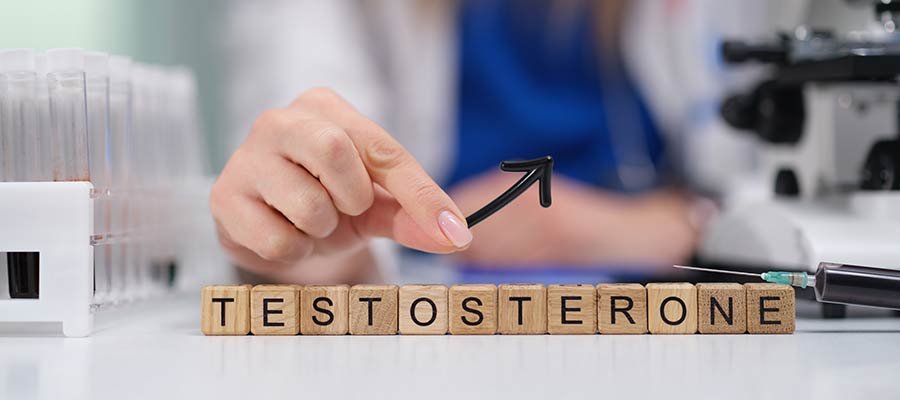Testosterone Replacement Therapy (TRT) has grown increasingly popular worldwide, and some patients consider traveling abroad to receive treatment. This may be due to cost savings, privacy, or access to specialized clinics. But is it safe to get TRT while traveling internationally?
In this article, we break down the key safety protocols, medical licensing, and facility accreditation you need to understand before starting or continuing testosterone therapy abroad. We’ll also review popular TRT destinations and what to watch out for to ensure safe, effective care.
✈️ Why Consider TRT Abroad?
- Cost savings: Some countries offer TRT at a fraction of the price compared to the U.S. or Western Europe.
- Access to specialists: Certain clinics abroad may have more experience or advanced protocols.
- Privacy: Traveling may provide discretion for sensitive treatments.
- Availability: Some countries have fewer regulatory hurdles, enabling faster access to TRT.
⚠️ Safety Considerations When Getting TRT Abroad
While the benefits are tempting, it’s critical to prioritize safety. Here’s what to consider:
1. Medical Licensing and Credentials
- Verify the doctor’s credentials: Ensure your provider is licensed in their country and has appropriate qualifications in endocrinology or hormone therapy.
- Check international recognition: Some countries have stricter licensing boards that align with international standards; others may not.
- Beware of non-medical providers: TRT should only be prescribed and supervised by qualified physicians, not wellness coaches or clinics without medical oversight.
2. Facility Accreditation
- Look for accreditation: Clinics should be accredited by recognized healthcare bodies such as Joint Commission International (JCI) or equivalent national health authorities.
- Evaluate clinic reputation: Research patient reviews, testimonials, and years of operation. Trustworthy clinics will often share their credentials openly.
- Ensure sterile and modern equipment: Hormone injections and lab draws require clinical hygiene and safety protocols.
3. Blood Testing Standards
- Reliable TRT depends on accurate lab testing: testosterone levels, hematocrit, liver function, estradiol, PSA, and more.
- Confirm labs are certified and use validated assays.
- Some clinics send bloodwork to internationally accredited labs; this is a good sign.
4. Medication Quality and Regulation
- Check that the testosterone products are FDA-approved or approved by relevant health authorities (e.g., EMA in Europe).
- Avoid unregulated or counterfeit hormone products, which can be unsafe or ineffective.
- Some countries have stricter import controls, meaning medications abroad may differ in formulation or quality.
5. Follow-up Care and Monitoring
- TRT requires ongoing monitoring every 3–6 months.
- Traveling abroad might complicate continuous care unless you have a coordinated plan with a local provider or telemedicine follow-ups.
- Understand how emergencies or side effects will be handled while away from your primary care team.
🌍 Popular TRT Destinations and What to Know
Mexico
- Pros: Proximity to the U.S., lower costs, many English-speaking clinics.
- Considerations: Verify clinic accreditation, as regulation varies. Some clinics cater to medical tourists with reputable standards.
Thailand
- Pros: Advanced private medical facilities, affordability, international accreditation in major cities (Bangkok, Phuket).
- Considerations: Check licensing and medication sources carefully.
Turkey
- Pros: Growing medical tourism industry, competitive pricing, experienced hormone specialists.
- Considerations: Language barriers possible; choose clinics with English-speaking staff and verified accreditation.
Europe (Germany, Spain, UK)
- Pros: High healthcare standards, strict licensing and medication regulations.
- Considerations: Costs may be higher; TRT often tightly regulated, requiring thorough evaluation.
Caribbean & Central America
- Pros: Some clinics offer concierge-style TRT services.
- Considerations: Highly variable quality; do due diligence.
🛡️ Tips for Safe TRT While Traveling
- Consult your primary physician before travel: Discuss your plans and coordinate care.
- Research clinics thoroughly: Use government or international medical tourism resources.
- Request copies of your medical records and labs: Bring them with you to new providers.
- Confirm medication legality: Check if your TRT medication is approved and legally available in the destination country.
- Plan for follow-up care: Identify local doctors or telemedicine options for post-trip monitoring.
- Watch for red flags: Unrealistically low prices, no medical oversight, lack of lab testing, or no formal clinic location.
🔍 Summary
| Factor | What to Do | Why It Matters |
|---|---|---|
| Medical Licensing | Verify doctor credentials | Ensures qualified, safe care |
| Facility Accreditation | Choose JCI or national-accredited clinics | Guarantees hygiene and standards |
| Lab Testing | Use certified labs | Accurate hormone monitoring |
| Medication Quality | Confirm approved products | Avoid counterfeit risks |
| Follow-up Care | Coordinate ongoing monitoring | Prevent complications |
📝 Final Thoughts
Getting Testosterone Therapy abroad can be safe and effective—but only when you thoroughly vet the provider, clinic, and medications. Safety protocols, medical licensing, and facility accreditation vary widely by country and clinic.
If you’re considering TRT while traveling, prioritize quality and safety over cost savings. A well-planned approach with trusted medical oversight will protect your health and optimize your therapy outcomes.




